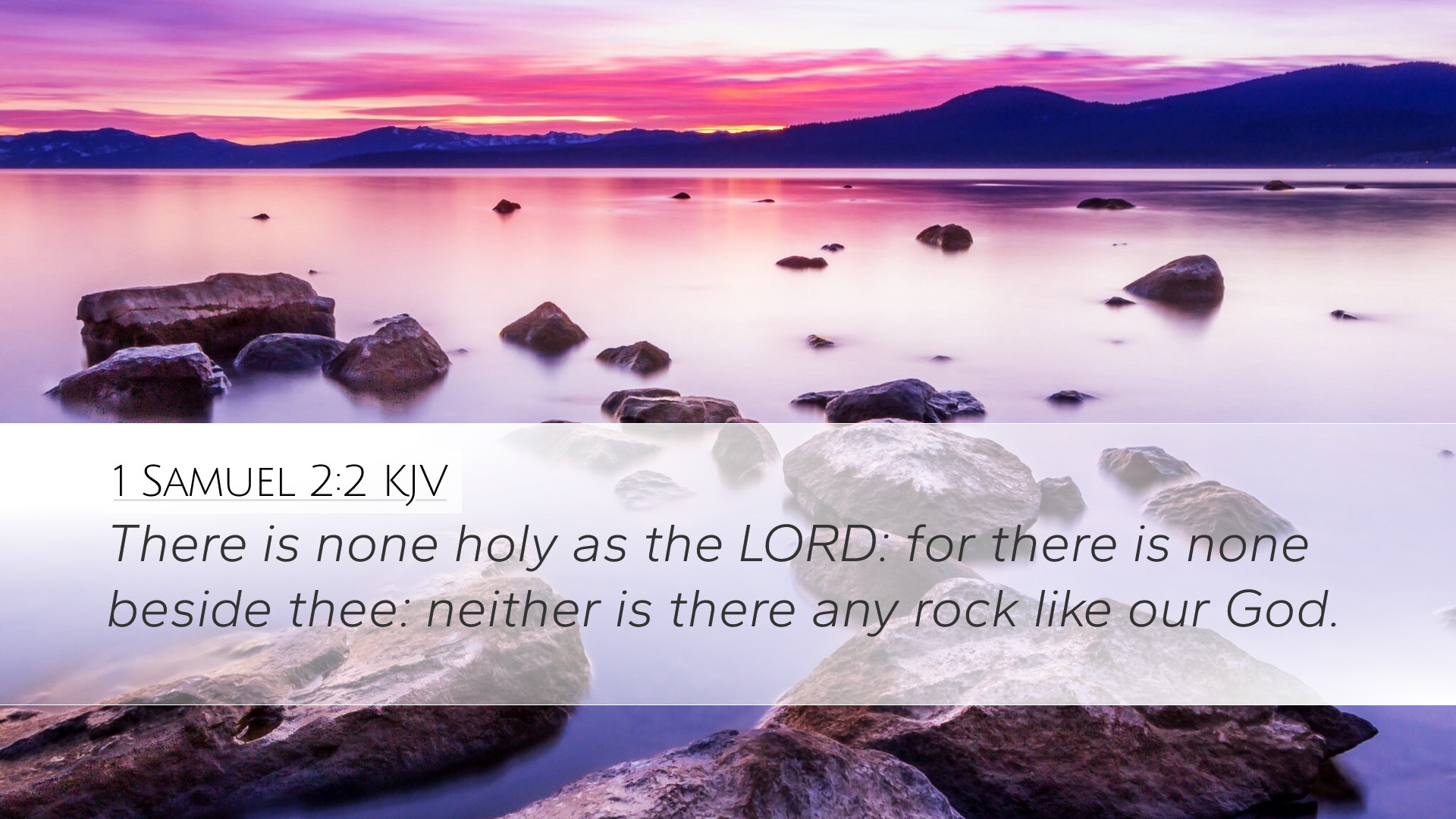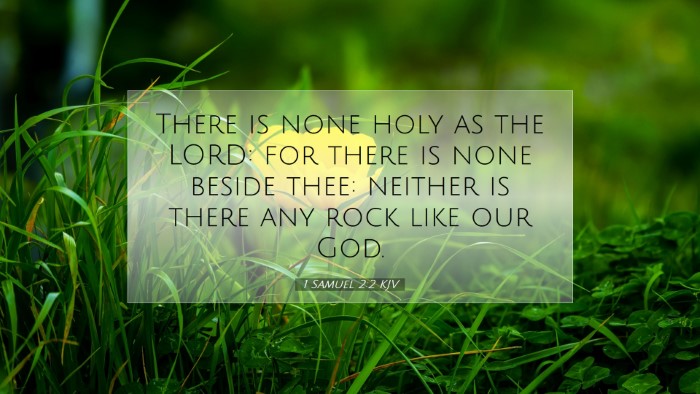1 Samuel 2:2 Commentary
Verse: "There is none holy as the Lord: for there is none beside thee: neither is there any rock like our God."
Overview
This verse, part of Hannah's prayer in 1 Samuel 2, encapsulates a profound declaration of God's uniqueness and holiness. Drawing from the public domain commentaries of esteemed theologians such as Matthew Henry, Albert Barnes, and Adam Clarke, we can glean a deeper understanding of its implications for faith and worship.
Analysis of Key Themes
- Divine Holiness:
Hannah begins with the assertion that there is none holy as the Lord. Matthew Henry notes that God's holiness is an essential attribute that sets Him apart from all creation. It reflects His purity, moral perfection, and separateness from sin. Holiness invokes reverence and awe among His people.
- God's Uniqueness:
Hannah further states that there is none beside God, emphasizing His singularity. Albert Barnes reflects on this sentiment by asserting that God stands alone in His attributes and power. He is unmatched in wisdom, sovereignty, and love, and this uniqueness calls for exclusive devotion from His followers.
- God as a Rock:
The metaphor of God as a rock is significant. Adam Clarke highlights that this image conveys strength, stability, and dependability. In the midst of life's uncertainties and challenges, God is an unwavering foundation upon which the faithful can rest their hopes and trust.
Theological Implications
1. God’s Holiness and Worship: Understanding God's holiness is crucial for proper worship. As Matthew Henry elaborates, true worshippers must acknowledge God's separateness from sin and render homage accordingly. Worship must be done in the beauty of holiness, recognizing both His majesty and His moral perfection.
2. Assurance in God’s Uniqueness: The declaration that there is none beside Him provides comfort to believers. Barnes points out that this assurance encourages a personal relationship with God, enabling His children to trust Him in all circumstances. This unique relationship fosters a dependence on His providence and grace.
3. Stability in God as Rock: Clarke's emphasis on God as a rock invites reflection on the believer's security in turbulent times. The image of the rock illustrates that God is a shelter in the storm, a reliable refuge when faced with trials. The faithful find their peace in Him, knowing that He is steadfast and unchanging.
Practical Applications
- Enhanced Worship:
Recognizing God’s holiness should deepen the reverence in our corporate and personal worship. It calls for intentionality in approaching Him with awe and honor.
- Trust in Providence:
In light of God’s uniqueness, Christians are encouraged to face life’s uncertainties with faith. Trusting in His sovereign rule allows believers to relinquish anxieties and embrace peace.
- Finding Strength in God:
Believers are encouraged to anchor themselves in God as their rock. In prayer and scripture, they can draw strength and assurance from His eternal stability and faithfulness.
Conclusion
1 Samuel 2:2 serves as a profound reminder of God’s attributes, calling believers to recognize His holiness, uniqueness, and stability. Drawing insights from Matthew Henry, Albert Barnes, and Adam Clarke offers a robust theological framework that undergirds personal faith and corporate worship. Pastors, students, theologians, and scholars are invited to meditate on this verse, allowing it to shape their understanding and practice of faith.


